12 summer safety tips for the elderly
Tags
Living Well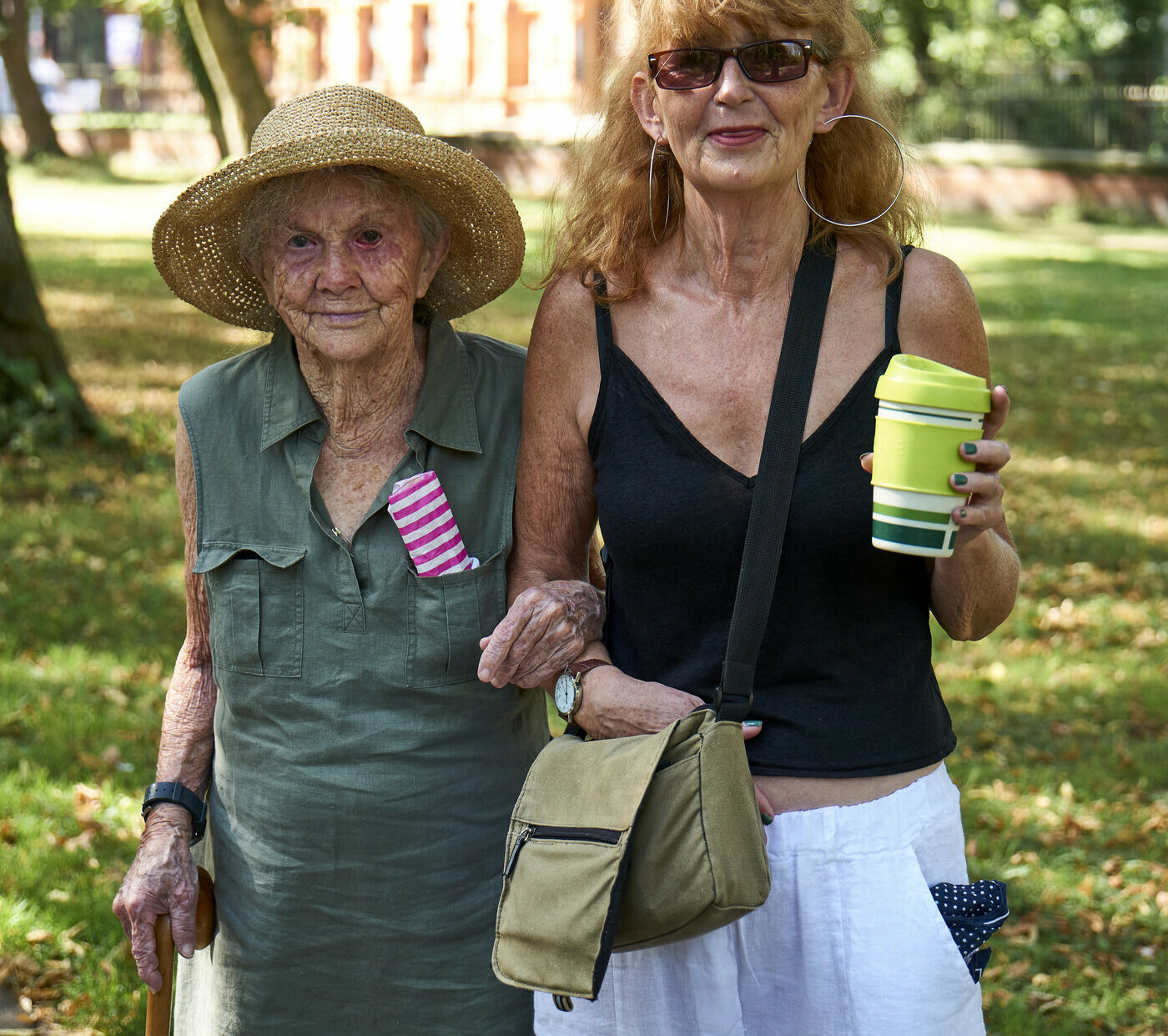
It’s important for everyone to take care in hot weather – anyone can become unwell if they’re exposed to soaring temperatures. However, for older people and those living with dementia, a heatwave can be a real danger if you don’t take the right precautions. Take a look at these safety tips to help you protect yourself and your loved ones this summer.
Who's more at risk in hot weather?
Older people aged 65 years and over – It becomes more difficult to stay hydrated as we get older, and certain chronic medical conditions common in later life, such as heart problems, diabetes, and kidney disease can impact the body’s normal responses to heat.
People with mental health problems – Heatwaves can make it harder to sleep, which may worsen conditions such as anxiety and depression. Some mental health medications may not work as well in hot weather or make you sweat more, which can lead to dehydration if you’re not drinking enough.
People with dementia – Dementia can disrupt the body’s internal systems that regulate or perceive temperature. Someone with dementia may also forget to drink enough in hot weather.
1. Get plenty of fluids
This may seem obvious, but you can become more susceptible to dehydration in later life, especially if you’re living with dementia or limited mobility.
- Drink plenty of water-based drinks throughout the day. You may have heard the myth that a hot drink like a cup of tea can actually cool you down on a hot day, however caffeine can dehydrate you more, so it may be best to avoid tea and coffee.
- If you’re supporting someone who is less able to get up and fetch a drink whenever they want, leave cups of water in easy reach.
- If someone is living with dementia it may help to use a brightly coloured cup and leave it at eye level to draw their attention. A cup that’s not too heavy and easy to hold may be beneficial too.
- If the person you’re looking after forgets to drink, remind them by having a drink together, or making sure having a drink with meals becomes part of their regular routine.
- Incorporate high-water content foods into meal times such as soup, melon and ice cream. Special sweets called Jelly drops can also help a person stay hydrated. These fruit flavoured treats are sugar free and made of 95% water with added electrolytes & vitamins.
2. Choose the right clothing
Many people opt for light coloured clothing in hot weather as it reflects heat. However, while you want to keep the heat off of you, your body radiates heat too, and darker clothing can help absorb this heat.
So, the fit and fabric you choose is likely to be more important than the colour. Loose fitting clothing is best, while fabrics with texture – such as seersucker or the fabric used in polo shirts can help lift the surface area of your clothes off of your skin. Lightweight, breathable fabric like uncoated cotton and linen are good choices as they allow air to circulate and sweat to evaporate. Wearing a wide-brimmed hat can help protect your head, face and ears.
Someone with dementia may struggle to wear suitable clothing in a heatwave as they may not realise how hot it is, or they may follow their usual routine and choose an outfit they’re used to wearing in average temperatures.
3. Make sure sunglasses are up to code
Sunglasses that bear the CE mark or the British Standard BS EN ISO 12312-1, UV400 label provide the most eye protection from UV rays.
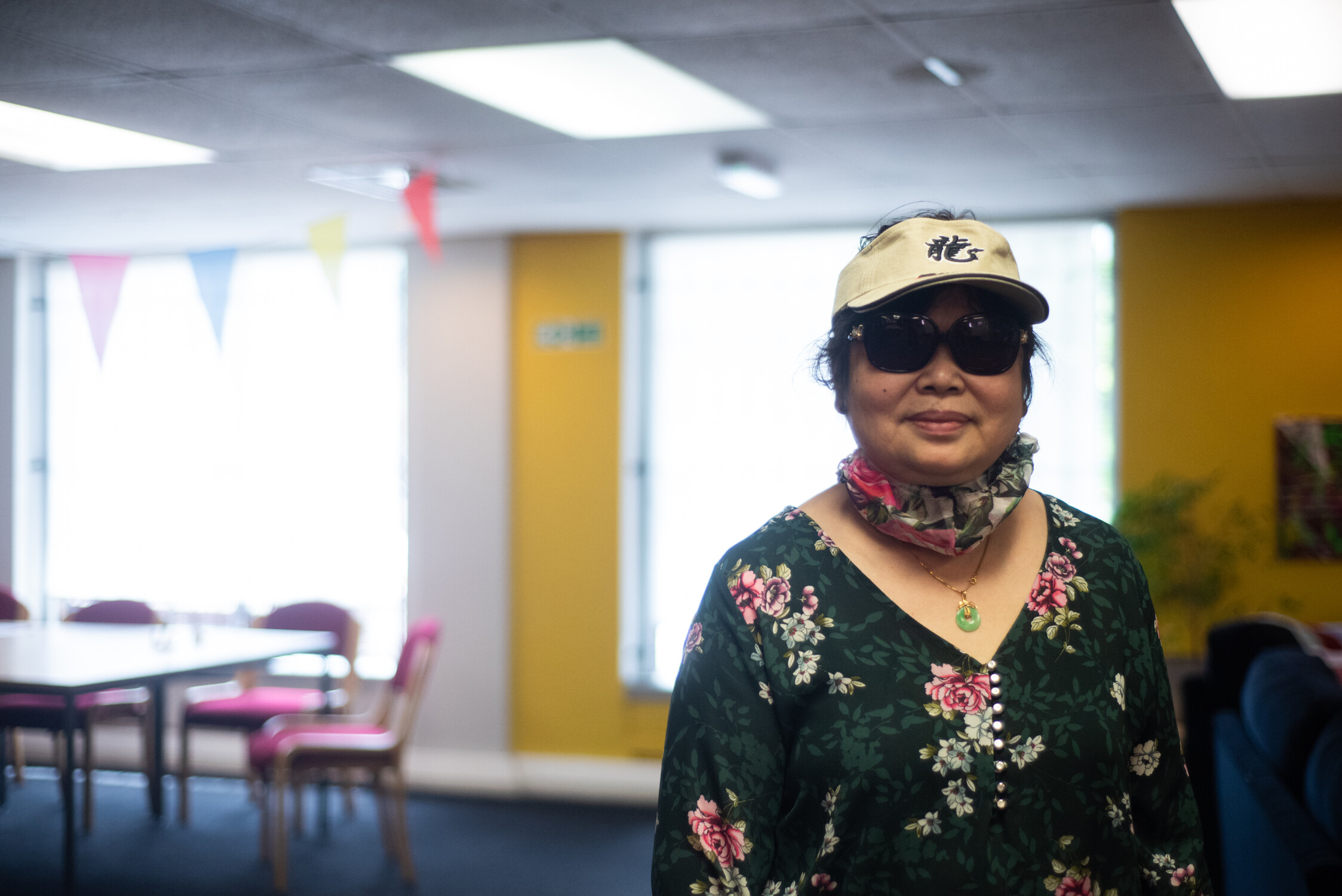
4. Keep the home cool
Most homes in the UK aren’t built for extreme heat, and few have air conditioning. To beat the heat, close windows, blinds and curtains during the day, and open them again in the cooler evenings. If bedrooms get too hot, you may wish to set up a temporary bed in a cooler part of the house to aid restful sleep. Electronics can generate a lot of heat, so turning off unnecessary lights and appliances may help too.
5. Understand your medication
If you’re on medication that impacts your fluid intake or makes you need to use the loo more, get advice from your GP on how best to manage this in hot weather.
Some medications can make your skin more sensitive to the sun, we’ll look at how best to manage this later on.
Make sure you have enough medication to last you over extended periods of hot weather, this will save you a trip to the GP or pharmacist.
Most medicines should be kept below 25°C, in a cool, dry place, outside of direct sunlight. In a heatwave take a few moments to ensure medicines aren’t left out next to windows or in rooms that get especially hot.
And, while certain medications can and should be stored in the fridge, some won’t work properly if they become too cold, so always check the packaging carefully.
If you’re worried a medicine has been stored at the wrong temperature, contact your GP to check if it’s still ok to take, or if you should pick up a new prescription.
6. Be vigilant about food safety
Warm weather can increase the risk of harmful bacteria on food if it’s not stored or prepared correctly. Make sure you’re cleaning kitchen surfaces regularly throughout the day, and wash hands for at least 20 seconds before touching food. Check fridges and freezers are set to the right temperature, and never defrost foods on a kitchen counter – keep them in the fridge.
If you’re having a picnic or barbecue, avoid leaving food out for more than a couple of hours in hot temperatures – it can help to have a cooler box with ice packs to hand if you’re planning on being outside for a while. If food has been in a hot car, for example if you’ve just been to the supermarket, refrigerate it within an hour to prevent it spoiling.
7. Be skin safe
The link between sun exposure and skin cancer is well-reported, and protecting the skin is just as important in later life. Always choose a sunscreen with a sun protection factor (SPF) of at least 30, and at least 4-star UVA protection. Apply even if you’re only popping out for a short time, or sitting by a sunny window, and reapply regularly – every 2 hours if you’re sweating or swimming.
Older skin can be more fragile and sensitive. Moisturising everyday with a gentle, unscented moisturiser can help soothe and prevent dry skin.
8. Always check the weather
Heatwaves often come on suddenly. In the summer months a day may start off cooler, but temperatures can rise significantly by midday. This is why it’s really important to check the weather regularly so you can plan ahead. Schedule outdoor activities or trips out for the early morning or evening, and avoid being outside between 11am and 3pm.
If you or a loved one is living with asthma or breathing problems be sure to check air pollution forecasts too. If you have to leave home when pollution is high, make sure you bring any inhalers or medication with you.
9. Find ways to keep cool
A bath or shower in cool water (not cold water) can help regulate your temperature, and may help calm a person with dementia down if they’re becoming agitated by the heat. A cold wash cloth can be a refreshing way to cool your face, and placing a frozen water bottle in front of a fan can act as a DIY air conditioner.
10. Protect yourself from mosquitoes
Bites usually aren’t serious but they can be unpleasant, and the itching can be a problem for older people with fragile skin. Covering up with loose fitting clothing and using repellant (be sure to check the expiry date) are the first steps in preventing pesky mosquito bites. It can also help to avoid being outside when they’re most active – between dusk and dawn, and avoid areas where there is standing water, such as ponds.
11. Understand the warning signs that something's not right
Heat exhaustion and heat stroke can be really serious, so it’s important to understand the early signs.
- feeling tired
- feeling dizzy
- headache
- feeling nauseous or being sick
- excessive sweating
- pale or clammy skin
- heat rash or a change in colour (this may be harder to spot on brown or black skin)
- a high temperature
- being excessively thirsty
- feeling weak
The NHS recommends moving to a cool place, removing all unnecessary clothing like a jacket or socks, rehydrating with cool water and cooling the skin if you notice any of these symptoms.
If you’re worried about these symptoms or they don’t get better after 30 minutes , it’s crucial to seek medical help by calling 111, or 999.
12. Look after each other
Check in on older loved ones to ensure they have everything they need and aren’t having difficulties in the warmer weather. An offer to help with a food shop, close windows which have become stiff or have difficult handles, or simply sitting with them to keep them company at home can make a big difference. If you don’t live nearby, see if there’s a friend, neighbour or carer who can pop in.
Sources –
- https://www.ageuk.org.uk/cymru/our-work/promoting-health-and-wellbeing/summer-health-advice/
- https://www.alzheimers.org.uk/blog/how-support-somebody-living-dementia-hot-weather
- https://www.gov.uk/government/publications/beat-the-heat-hot-weather-advice/beat-the-heat-staying-safe-in-hot-weather
- https://www.nhs.uk/live-well/seasonal-health/sunscreen-and-sun-safety/
- https://www.bbc.com/future/article/20230802-what-is-the-best-clothing-to-keep-you-cool
- https://www.nhs.uk/conditions/heat-exhaustion-heatstroke/
Find your ideal carer
We have connected over 5,ooo families and carers across Great Britain. Search for yours today.
Read more later life articles
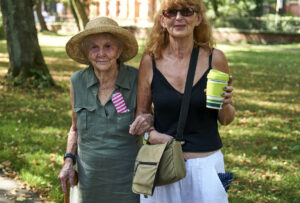
12 summer safety tips for the elderly
It’s important for everyone to take care in hot weather – anyone can become unwell if they’re exposed to soaring temperatures. However, for older people
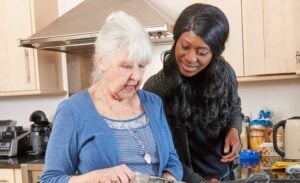
Live-in care vs other types of care
Live-in care vs other types of care Navigating elderly care options for a loved one is a significant decision. While care homes are a common

Defining Dignity in Later Life – Interview with Liz Lloyd
We talked to Liz Lloyd about personal and social perceptions of age, the challenges of identity, empowerment and choice.

The Challenges of Vegetarians and Vegans Living with Dementia
We talk to Amanda Woodvine about the challenges faced by older vegetarians and vegans receiving care. Read more here.
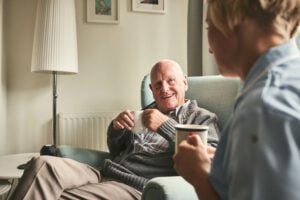
How much does live-in care cost?
How much does live-in care cost? Live-in care provides one-to-one support in the comfort of your loved one’s home, but how much does it cost?
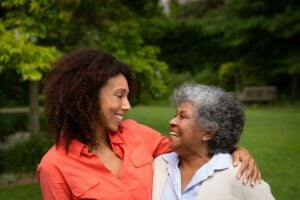
How much does respite care cost?
Respite care offers short-term relief for primary carers, and the cost can vary widely depending on the type of care, location, and level of support
